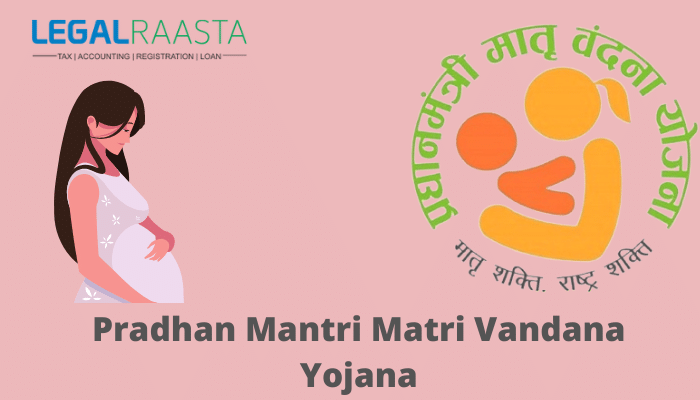Indian Trusts Act – Objectives, Registration of trust, Formation & Taxation
A trust (under the Indian trusts act 1882) is a legal relationship that occurs when one man, for the benefit of a third person or himself, hands over all or some of his property to another. The author is known as the person who hands over the land, the person who receives it is known as the trustee, and the beneficiary is known as the person who profits from it. For example, a person will create a trust with the directive to provide for his old age from the proceeds of the land by handing over a portion of his land to a friend. For instance, an individual may also create a trust by transferring those bonds he holds to a bank and ordering them to provide his wife with maintenance after his death from the dividends earned on the bonds. There are essentially two forms of laws regulating faith in India: 1) The Indian Trusts Act 1882, which deals with private trusts. 2) The Act of Public Trust of different States concerned with public trusts. These Acts are based on the Indian Trusts Act 1882's general structure.Introduction: Indian Trusts Act, 1882
The Indian Trust Act is a law relating to private trustees and trustees of India. The deed explains what the Trust will actually be called, and who exactly can be a trustee and give an explanation to them. The Indian Tr trust Amendment Bill of 2015 empowered the government to consider investments of trust at its own discretion, but at the same time removed certain restrictions on investment in assets, etc. Assets to be managed by the trust, and how to appoint trustees and beneficiaries. In addition, the Act states that a trust must have a clear definition of the following:- What the author's purpose is to create trust.
- A future beneficiary who is a later asset manager.
- The purpose of the trust.
- Financial assets donated to the fund.
- Grants control financial assets - whether entrusted to a trustee, partially or in full, and which administrator has left.
The Formation and Meaning of Trust
The Trust Definition: As provided for in Section 3 of the Indian Trust Act 1882: 'A trust is a responsibility attached to the possession of the property and arising out of a trust reserved and accepted by the owner or declared and accepted by the owner for the benefit of another, or of another, and of the owner.' For the purposes of NGO registration, a decision on the following issues must be taken:- The Trust Name and Address
- The subject-matter of the Trust, whether for a charitable or religious purpose
- Settler of confidence
- Two fiduciaries
- If it is movable or immovable, trust land.
All Parties in a Trust according to Indian trust act
Author/Trustor/Donor/Settlor (Mr. P)-The individual who originally transfers his property and trusts another person to establish the trust. Trustee (Mr. Q)-The person who acknowledges both the transfer of property and the trust in order to establish the trust. Beneficiary (P's Grand-daughter)-The final beneficiary of the trust who in the near future will benefit from the trust, or the person for whose benefit the trust is established.Purpose of creating a Trust
In accordance with Section 4 of the Indian Trusts Act of 1882, all objectives and aims are said to be lawful for establishing a trust, unless they are: In general, trusts are established or generated to fulfill either or more of the following goals:- For the discharge of the author of the settler of the trust's charitable and/or religious feelings, in a way that guarantees public benefit.
- In order to claim an exemption from income tax U/s 10 or 11, as the case may be, in relation to income for charitable or religious reasons.
- For the well-being of family members and/or other relatives who are relying on the trust settler;
- For the proper administration and protection of property.
- In order to manage the affairs of a provident fund, of a superannuation fund or of a gratuity fund or of any other fund established for the welfare of its workers by a person.
Who can apply for the formation of Trust?
Under Section 7 of the Indian Trusts Act, a trust can, with the permission of the principal court of original jurisdiction, be formed by any person competent to contract and by or on behalf of a minor. The following are eligible for the creation of a Trust.- Trust of an Undivided Hindu Family
- Trust from a Minor
- Trust by a woman
- The Persons' Association
- Company
Read more about: What is the difference between Section 8 Company and Trust?
Meaning of Trust Deed
It is a tool of trust called trust. A trust deed has many clauses such as a name clause, a registered office clause, an insertion, and a clause in a body part clause, and other rules and regulations. Funding Registration Requirements Here are all Trust deed Registration Requirements:- Trust Deed on stamp paper and required stamp duty.
- Passport size photo & Proof of residence ID.
- Passport size photograph and identity document of two trustees.
- Passport size & proof of identity of two witnesses.
- On each page of the title deed, the signature of the residence.
- Two witnesses to the style of hope.
Types of Trust
Private Trust:
A fund is called a Private Trust if it is for the benefit of one or more persons, or within a specified period, which may be available. Financially Trusted Trustees are governed by the Indian Tr trust Act 1882. Private Trust may be established between Vivos or will. Prerequisites for building a Private Trust:- The person who creates the trust (residence) must make an undoubted declaration that binds him or her.
- Trust items must be defined and clarified.
- Beneficiaries specified.
- They must transfer the identifiable asset under an immovable order and separate themselves entirely from the ownership and enjoyment of the revenue from that asset.
- Unless all the requirements listed above are met, the trust cannot be assumed to exist.
Public Trust
The fund is called the Public Trust when it is created entirely or primarily for the benefit of the general public, in other words, the beneficiaries of the Public trust form a non-profit organization. Public funds are actually charitable or religious resources and are governed by the general Law. The provisions of the Indian Trustees Act do not apply to Public Trustees. Like secret trusts, public trusts can be built by inter vivos or by will. Indian Tr trust Act does not apply to public trusts that may be established by common law. Prerequisites for creating a Public Trust:- Declaration of trust binding on the occupant,
- Setting aside certain property and living space that Deprives it of ownership
- A statement of the items on which the property will be Held afterward, i.e. the beneficiaries.
Public-cum-Private Trusts
Some trusts may be classified as Public cum Private Trusts, whose portion of the profits may be used for public purposes and a portion may go to a private person or individuals. Such trusts shall be eligible for exemption in respect of the portion of income earned by private individuals or persons as private trusts and shall be eligible for exemption in respect of the portion of income received for public purposes in compliance with section 11, given that such trusts have been created before the Income Tax Act of 1961, i.e. before 1-4-1962. Public-cum-private produced on or after 1-4-1963 is not eligible for U/S exemption 11.A Trust's Advantages:
- For charitable/religious purposes, a trust can be established that allows the settler to discharge his feelings of public benevolence, improvement of human misery, development of science, etc., in a controlled and proper way.
- A charitable or religious trust enjoys many tax exemptions and incentives from a tax point of view.
- Donations to qualifying charitable establishments are therefore deductible from the donor's taxable profits.
- For the welfare of family members and relatives dependent on the settler, a trust may also be created. In addition, by private / family trusts, there is an extensive scope of tax planning.
- The Institution of trust allows the settlor to protect his property from division and transfer to outsiders.










